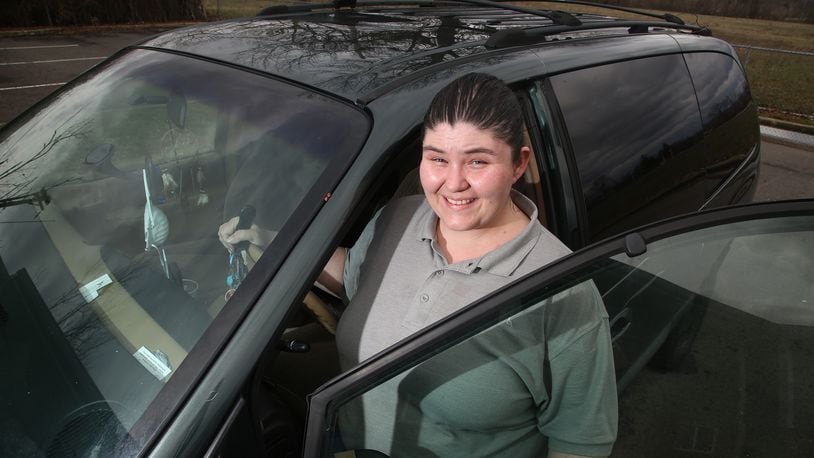Roberts knows what helplessness feels like. For seven years she was homeless, moving from shelter to shelter throughout Ohio with her three children.
Now, in the middle of the coronavirus pandemic, she is coming to the aid of those in need.
“The people that I’ve helped didn’t have any other way to get the transportation they needed, and I felt like they really needed me,” she said.
When she’s not working full time for Homefull, a nonprofit that serves the homeless, Roberts gasses up her 20-year-old mini-van to transport people to the House of Bread for an afternoon meal.
She runs errands, “sort of like a Door Dash,” picking up groceries for low-income mothers and medication for elderly people afraid to leave their homes.
“Dawn would do anything for anyone,” said Lynda Suda, manager of Five Rivers MetroPark’s 2nd Street Market, where Roberts has run Homefull’s produce stand for three years.
“She is someone who has the ability to connect and communicate with anyone in any walk of life. It doesn’t matter if they’ve never come close to needing an assistance program to someone who has been homeless like she was for many years.”
Roberts credits Homefull with where she is today.
She went through several of the organization’s programs and has worked full time with them for three years. “They helped me turn my whole life around,” she said.
While running errands and making deliveries, she talks about the coronavirus with the people she assists, stressing the importance of hand-washing and social distancing.
She also shares the lessons she learned living in shelters and how local social service organizations can provide help.
Some of the people she encounters are mentally ill and struggle to understand what’s happening in the world. Others are financially strained, and she pays for groceries from her own pocket.
“She’s just very empathetic,” Suda said. “She is really conscious of trying to make the world a better place.”
Those she helps call her an “angel” or a “blessing,” but Roberts remains modest. When asked how many people she recently helped in a week she says, “not that many, probably 25 or so.”
“I’m not rich or nothing but I still have money coming in. I have food and my kids are good,” Roberts said. “I feel like some people aren’t as good as I am.”
About the Author
